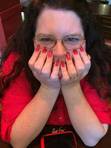My Go To Writing Books
Erica here:
I judge in a few writing contests each year, and one thing I like to do quite often is recommend a particular 'how-to' book on writing to address a particular issue in an entry.
Years ago, when I first started writing, I tried every instruction book on writing I could find. Did you know there are HUNDREDS of books on how to write a book out there today?
I started in my local library, then took recommendations from the writing community, then tried the books written by those I had taken classes from at conferences. My shelves were bursting with books on how to write books.
But in reality, not every writing book will work for every writer. We all learn differently, we all have different strengths and weaknesses in our writing, and we are all writing different things. While I might pick up a few tips for my fiction writing by reading how to write a memoir, it's probably not as helpful as reading a book on how to write historical mysteries, in my case.
Over the years, I've distilled my recommendations down to three main books, and I'd like to share those with you. If you've never read a book on how to write a novel, these three would be a good place to start. If you're buried under how to write a novel books and you're not actually writing the novel because you are still discovering your process, trying to learn enough to make it perfect as it falls out of your head, or just procrastinating doing the hard work of actually writing the story, then hopefully my list will help you see how to pare down your pile to a few that will actually help you get the work done.
1. Plot and Structure by James Scott Bell.
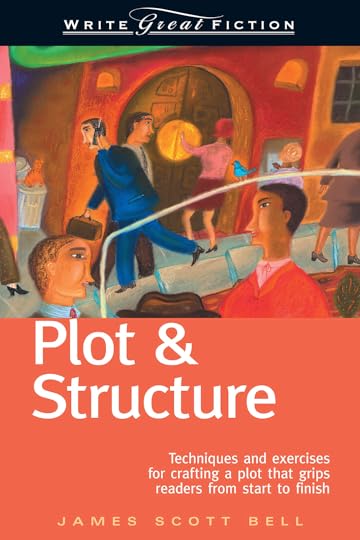
You must have a framework on which to hang your story. Whether you are a plotter, or a pantser, you must understand the structure of a story, how story works, how to put the pieces together in order to tell a story effectively, yes, but emotionally satisfying, even more so.
Reasons I recommend this book to writers:
a. It's no nonsense. While there is lots of meat on the bone here, it's clearly laid out, logically walking you through the process of plotting a novel.
b. It's written by an excellent teacher. I've taken several classes with James Bell, and he's an entertaining speaker and an interesting writer. This book is no napper!
c. The story structure he lays out works for me. Three acts, suspension bridge analogy, it all just fits into my head.
I know there are lots of ways to plot a novel, and no one way will be perfect for every writer. You might prefer The Hero's Journey or The Story Equation or Your Own Secret Method. But if you struggle to understand story, if your characters are milling about with nothing to do, try Plot & Structure.
2. Goal, Motivation, & Conflict by Debra Dixon
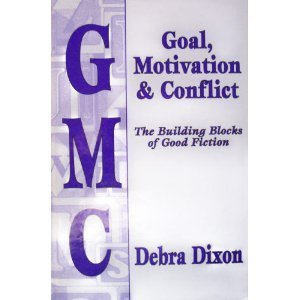
This book, y'all! I can't tell you how many new writers need this little tome. Here's the bottom line on writing novels: No Conflict, No Story! We all want to coddle our beloved characters, feather their nest, and keep them safe and warm, but NO! That is boring! No one wants to read about happy people in a happy land. Toss those characters out into the cold, be mean to them, make them struggle...but not aimlessly. The conflict must have a purpose, and it must rise out of the goals and motivations of the characters. Find out what your character wants, why they want it, and what is keeping them from getting it.
Reasons I recommend this book:
a. It lays out the most essential core of every great novel, in an "Why did I not realize this?" way. Easy charts, easy to understand concepts, and no extra chapters or words.
b. It uses commonly known movies as examples (because more people are likely to have watched the same movie than read the same book) and deconstructs them into Goal, Motivation, & Conflict to help understand the concept.
This book can be more difficult to get in print, though you can find it as an ebook. Haunt used book sites like Thriftbooks or Abebooks.com to get a hard copy.
3. The Complete Writer's Guide to Heroes & Heroines (16 Master Archetypes)
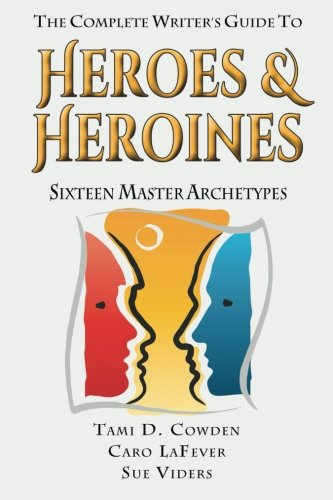
Okay, y'all, THIS BOOK! Way back in the hinterland of time, a guest blogger here at Seekerville recommended this book, and it was a game-changer for me. I am a plot-first novelist, and I used to find it difficult to create interesting characters who seemed authentic to themselves through the entire book. When I got my hot little hands on this volume, all that changed. Character creation became so much easier! My characters were different from one another, stayed consistent to their personality throughout the book, and hopefully became more interesting.
Reasons I recommend this book:
a. It gives eight hero archetypes and eight heroine archetypes, with examples from books, tv, and film for each type. Example, Spock and Sherlock Holmes are the same archetype. The same at the core, but different in expression.
b. It shows how each of the characters interact with each different archetype, a GOLD MINE for a romance author! Each hero type is paired with each heroine type, and the authors show how those characters Clash, Mesh, and Change as a result of their working together.
c. It's fun. An easy read with fun notes in the margins, examples of possible occupations for each of the character types, and fun comparisons with popular characters.
These are the three main 'how-to' writing books I recommend, no matter where you are in your writing journey. If you're new, these will be eye-opening and will help propel your writing forward. If you're a veteran, these can offer both a fun refresher course, and also give you some resources to pass along to newer writers.
QUESTION FOR YOU: What writing books are your 'go-to' resources? Have you read any of these listed here?
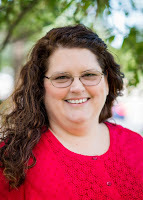
Best-selling, award-winning author Erica Vetsch loves Jesus, history, romance, and sports. She’s a transplanted Kansan now living in Minnesota, and she is married to her total opposite and soul mate! When she’s not writing fiction, she’s planning her next trip to a history museum and cheering on her Kansas Jayhawks and New Zealand All Blacks. You can connect with her at her website, www.ericavetsch.com where you can read about her books and sign up for her newsletter, and you can find her online at https://www.facebook.com/EricaVetschAuthor/ where she spends way too much time!
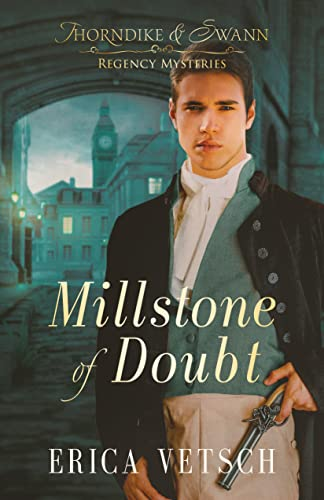
Regency London's detective duo is back on a new case--and this one is going to be a killer
Caught in the explosion of the Hammersmith Mill in London, Bow Street Runner Daniel Swann rushes to help any survivors only to find the mill's owner dead of an apparent gunshot.
Even though the owner's daughter, Agatha Montgomery, mourns his death, it seems there are more than a few people with motive for murder. But Daniel can't take this investigation slow and steady. Instead, he must dig through all the suspects as quickly as he can, because the clock is ticking until his mysterious patronage--and his job as a runner--comes to an abrupt and painful end. It seems to Daniel that, like his earthly father, his heavenly Father has abandoned him to the fates.
Lady Juliette Thorndike is Agatha's bosom friend and has the inside knowledge of the wealthy London ton to be invaluable to Daniel. She should be in a perfect position to help with the case. Still, her instructor in the art of spy craft orders her to stay out of the investigation. But circumstances intervene, dropping her into the middle of the deadly pursuit.
When a dreadful accident ends in another death on the mill floor, Daniel discovers a connection to his murder case--and to his own secret past. Now he and Juliette are in a race to find the killer before his time runs out.
"Erica Vetsch once again weaves a classic tale of how the old affects the new. An artfully told story that will have you wondering at the outcome until the final pages are read."-- Ruth Logan Herne, USA TODAY best-selling author

